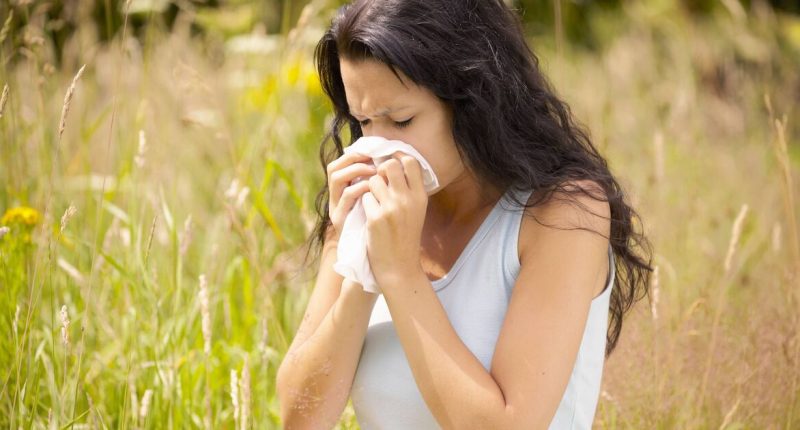Share this @internewscast.com
As springtime blossoms, many Brits will begin to suffer from hay fever.
This prevalent allergy triggers sneezing, coughing and itchy eyes, among other symptoms. Hay fever is most common during warmer, humid months when the pollen count is at its highest.
While there’s no cure for hay fever, the Royal Berkshire NHS Foundation Trust has revealed four lesser-known methods to alleviate the symptoms, if you don’t want to take medication. The trust posted a video on TikTok offering some crucial advice for managing this seasonal affliction.
1. Regularly shower and change your clothes.
Maintaining personal hygiene through regular showers is essential to keep our bodies clean and free from any substances we may have picked up outdoors. The NHS advises showering and changing your clothes after being outside to wash off any pollen.
Pollen is a fine, powdery substance discharged by flowering plants and trees as part of their reproductive process. Many people enjoy outdoor activities in warm weather, such as strolling in a park or picnicking on grass, but these are ways pollen can adhere to our clothes.
2. Avoid drying clothes outside
Many of us prefer to hang clothes out to dry in the garden when the weather is warm and sunny. This is a convenient and relatively quick method to dry freshly washed clothes, but the NHS discourages hanging clothes outside if you suffer from hay fever as they can collect pollen.
3. Apply Vaseline around your mouth and nose
Vaseline is known for its numerous skin and hair benefits including moisturising, healing wounds and mending split hair ends. It can also be used around the mouth and nose to trap pollen.
4. Keep windows and doors shut
It may be tempting to let in the warm, sunny weather by keeping your windows and doors open. However, this could invite pollen into your home, potentially triggering your hay fever symptoms.
What are the signs of hay fever?
The NHS has outlined the symptoms of hay fever on its website, which include sneezing and coughing, a runny or blocked nose, itchy, red or watery eyes, an itchy throat, mouth, nose and ears, loss of smell, pain around your temples and forehead, headaches and fatigue. It emphasises that while there is no cure for hay fever and it cannot be prevented, there are measures you can take to alleviate your symptoms when the pollen count is high.
These include regular vacuuming, dusting with a damp cloth, and following the methods suggested in the Royal Berkshire NHS Foundation Trust’s TikTok video.











